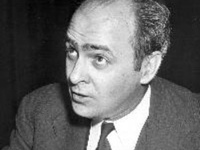Pusey hailed from Appleton, Wis., McCarthy’s hometown. The two had crossed paths just a year before when Pusey was one of 100 prominent Wisconsin residents who signed a booklet, titled “The McCarthy Record,” that criticized the senator’s political decisions during his reelection campaign.
Cronin says the Corporation’s choice of Pusey made a clear statement in the tense climate of the 1950s.
“His very selection indicated strong support of somebody who was very anti-McCarthy,” he says.
Soon after the decision was announced, McCarthy issued a harsh public statement against Pusey, telling the Boston Traveler in a letter that the new president’s political stance was “a combination of bigotry and intolerance behind a cloak of of phony hypocritical liberalism” and calling him a “rabid anti anti-Communist.”
At least McCarthy was happy to have Pusey out of Appleton.
“Regardless of who takes his place [at Lawrence College], it will be an improvement,” he said. “In other words, Harvard’s loss is Wisconsin’s gain.”
Yet again, Harvard was the university at the forefront of the Red Scare.
Small-town newspapers throughout the country printed excerpts of McCarthy’s letter within 48 hours of its release, dubbing the attack “Pusey vs. McCarthy.” A torrent of editorial letters flooded publications’ mailboxes.
The July 8 issue of the St. Albans Messenger declared, “Pro-Communism is rife in American education,” but Pusey himself had few words for the press.
“When McCarthy’s remarks about me are translated it means only—I didn’t vote for him,” he told the Associated Press.
Red Harvard?
In his first months as president of Harvard, Pusey acted as the stubborn “anti anti-Communist” that McCarthy had labeled him.
McCarthy was not ready to let Furry off the hook, but Pusey defied pressure to fire the professor.
“I cannot conceive of anyone sending their children anywhere where they might be open to indoctrination by Communist professors,” McCarthy told the Boston American in November 1953.
Pusey simply responded to McCarthy at a press conference by restating Harvard’s opposition to communism—but with the caveat that the University “is dedicated to free inquiry by free men.”
Read more in News
Sikh’s Sword Seized By School













